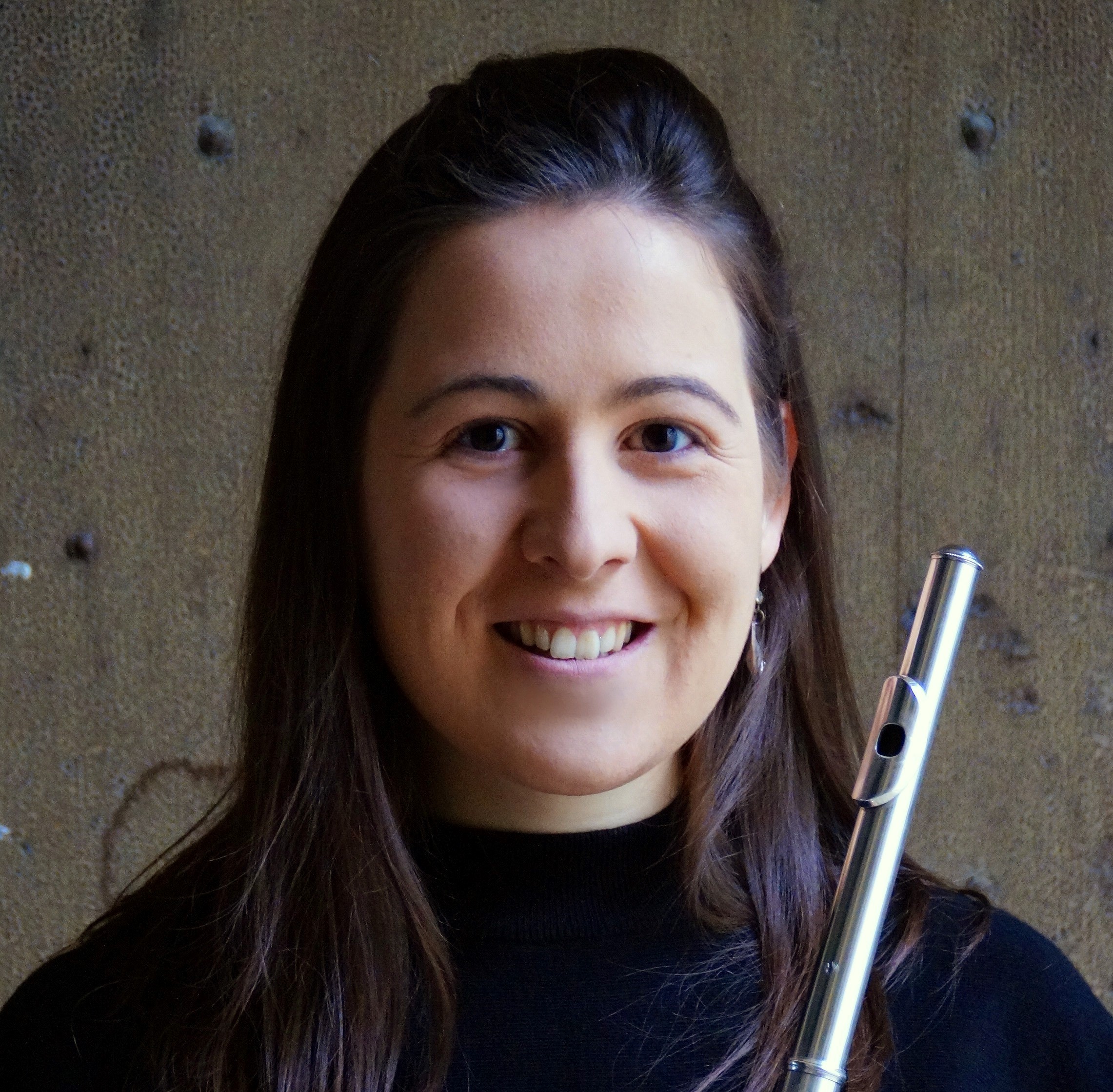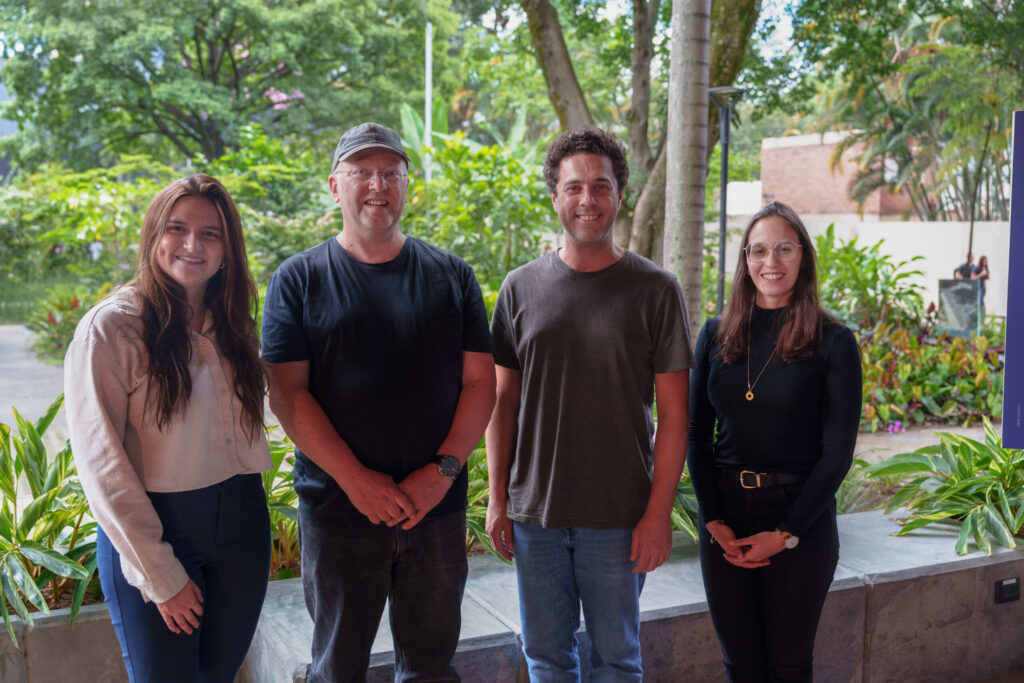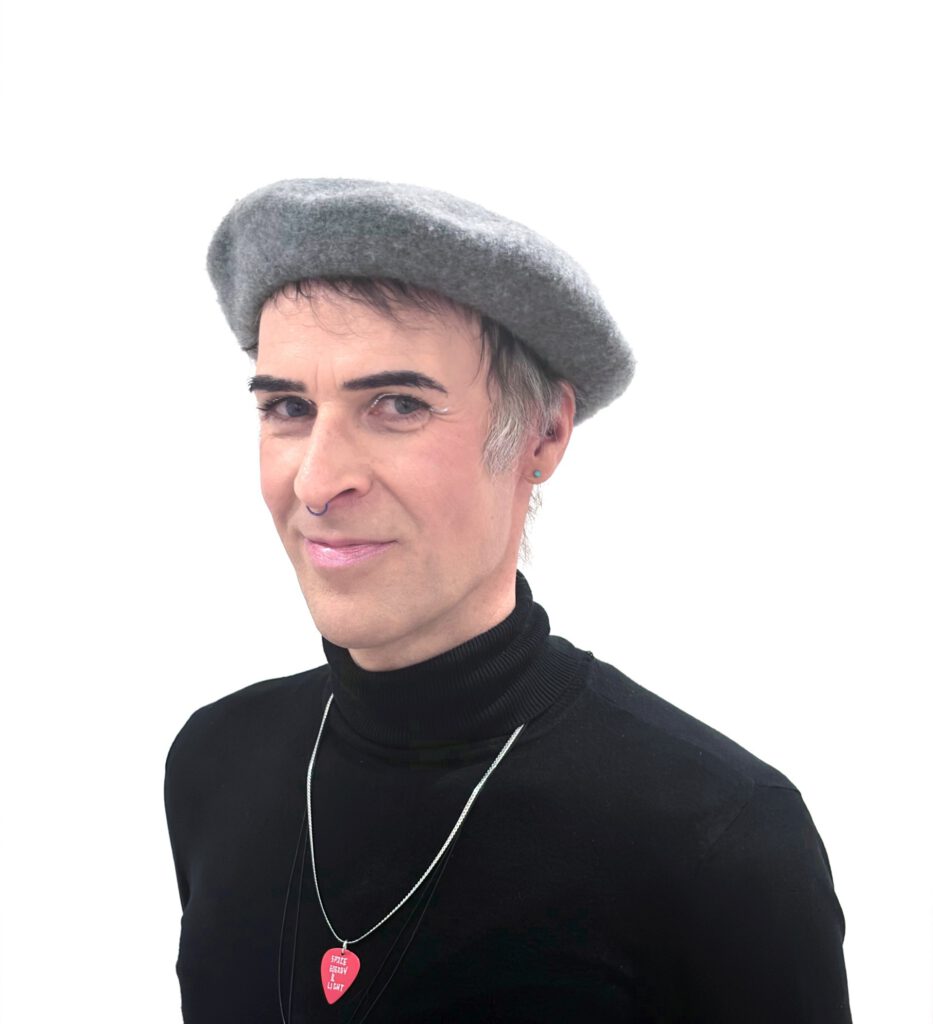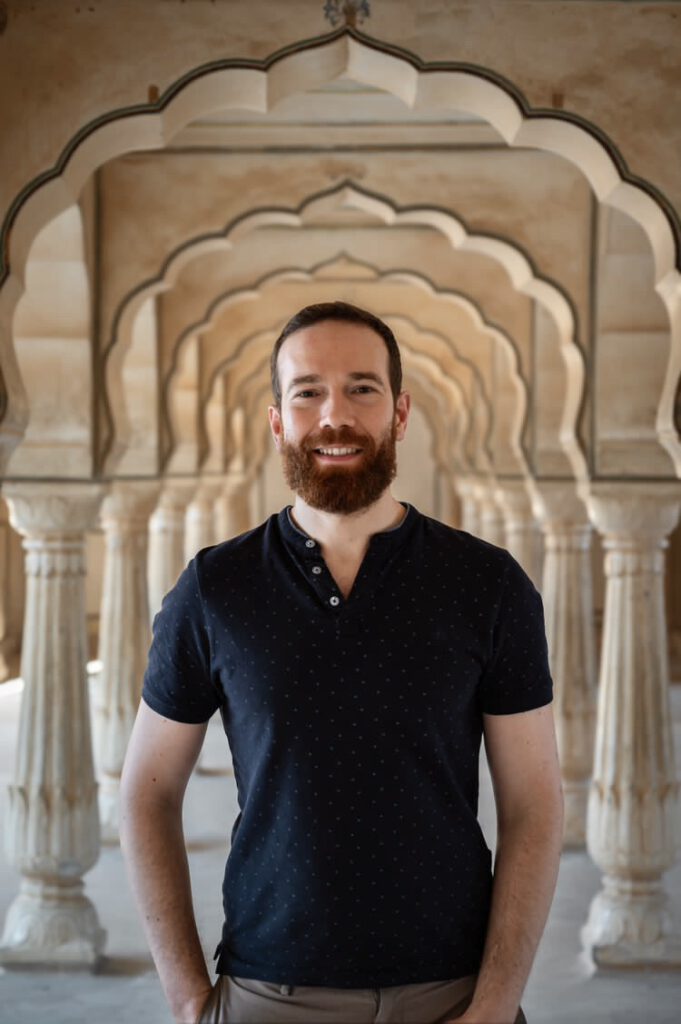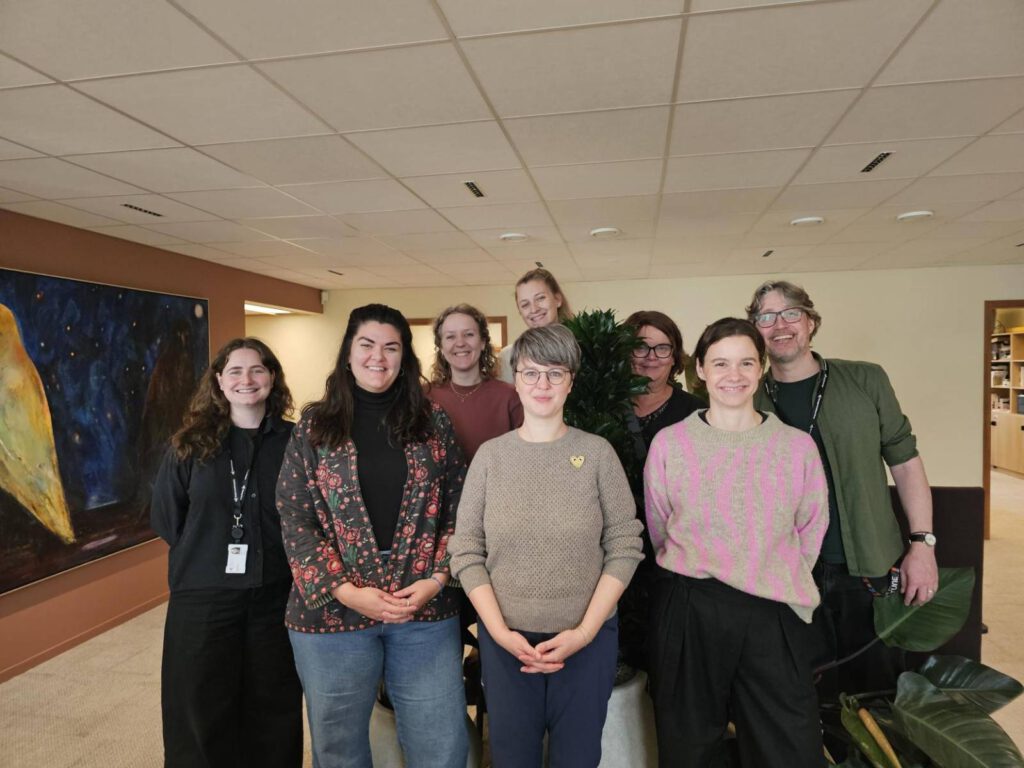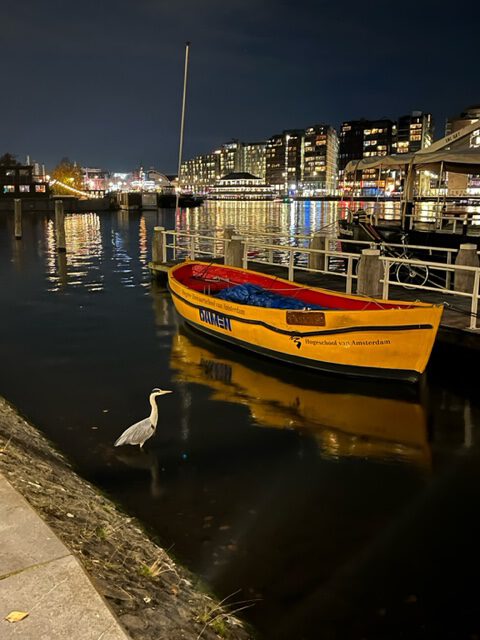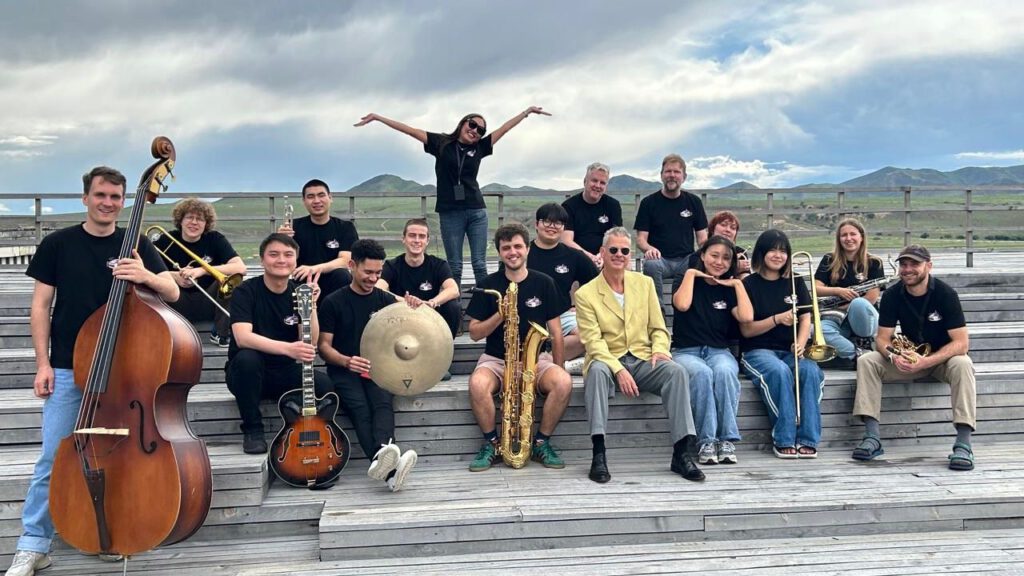Gaining New Perspectives on Life
An unforgettable year abroad in Zürich
Michaela Raab, mdw graduate in music education and pedagogy in the mdw’s master’s programme (IGP), with flute as her main instrument, studied at Zürich’s Hochschule der Künste (ZHdK) from February 2020 to the end of January 2021. She completed her studies in March 2021. In addition to flute, she also studied music education in the master’s programme at the mdw and mathematics at the University of Vienna. She was one of the few students who did not cut short her time abroad because of the Corona crisis – she followed her gut feeling and remained in Zürich. She talks more about her experience in the International Blog.

Why did you decide to study abroad at the ZHdK?
I decided spontaneously to apply at the mdw for a study-abroad spot. For me, the most important thing was to study at a good university that also offered a master’s degree in music pedagogy, because not every university has this. I was interested in how pedagogy was taught at a different university or conservatory. The next step was to find a teacher, and I travelled to auditions in Zürich and Bern. Ultimately, I was granted a spot in Zürich. I was very excited to be accepted into the class of Maria Goldschmidt-Pahn, the former principal flutist of the Zürich Opera, especially in light of the fact that spots for exchange students were limited. And Zürich is in any event a great city.
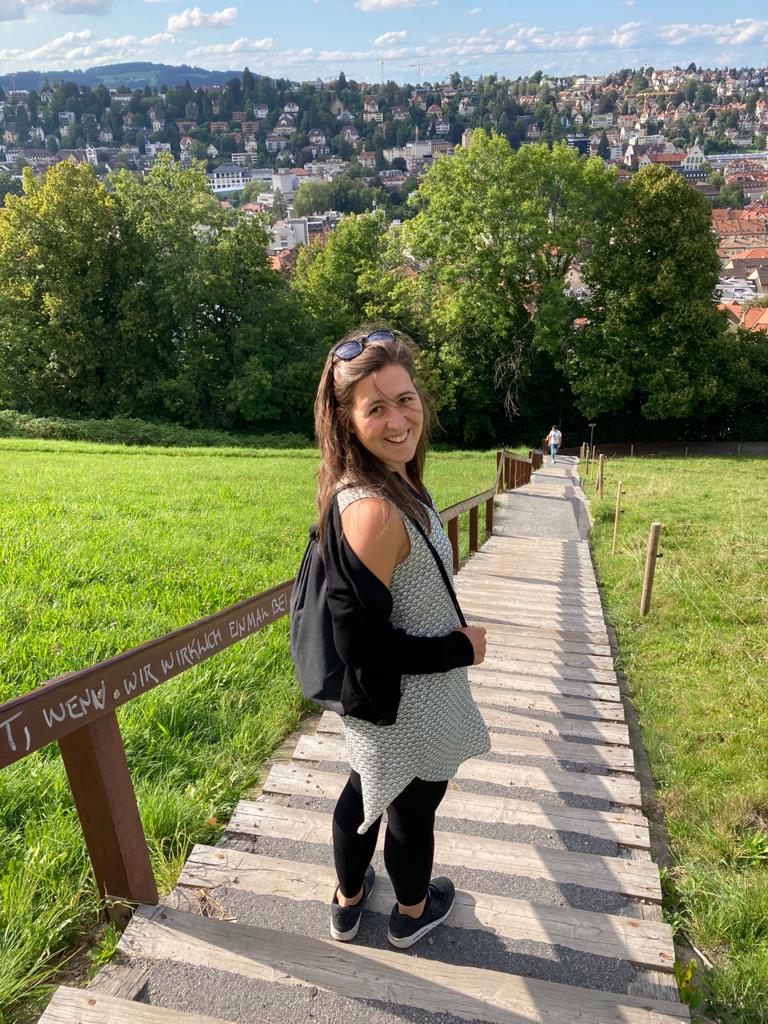
How was your stay there in light of the Corona situation?
I had very few in-person classes in the first semester. The semester started in February, and the lockdown began in mid-March. But those first weeks were good for me. I felt well cared-for from the very beginning and fairly quickly was able to find friends, meet my classmates and my teacher, and get accustomed to the new environment. These weeks were very valuable for me. So up until the first lockdown, I at least had a few in-person lessons. Before that, I only knew my teacher from the audition. Switching to online instruction was then challenging, of course. I was very fortunate in that my teacher invested a great deal of time and effort in doing everything she could to support me.
When I came to Zürich, I had no idea where I would live. Fortunately, I found something very quickly: a room in an international student residence in a good location only a few minutes’ walk from the lake. It was very exciting for me to meet students from other countries, but also challenging to have to suddenly speak English. I was incredibly lucky with my roommates. In Vienna I lived in a flat, and I thought I would never again want to live in a dormitory, but things turned out differently, and now it feels like living in a big family. I quickly became accustomed to the common rooms and learned that I do not need a lot of space and things to feel at home somewhere.
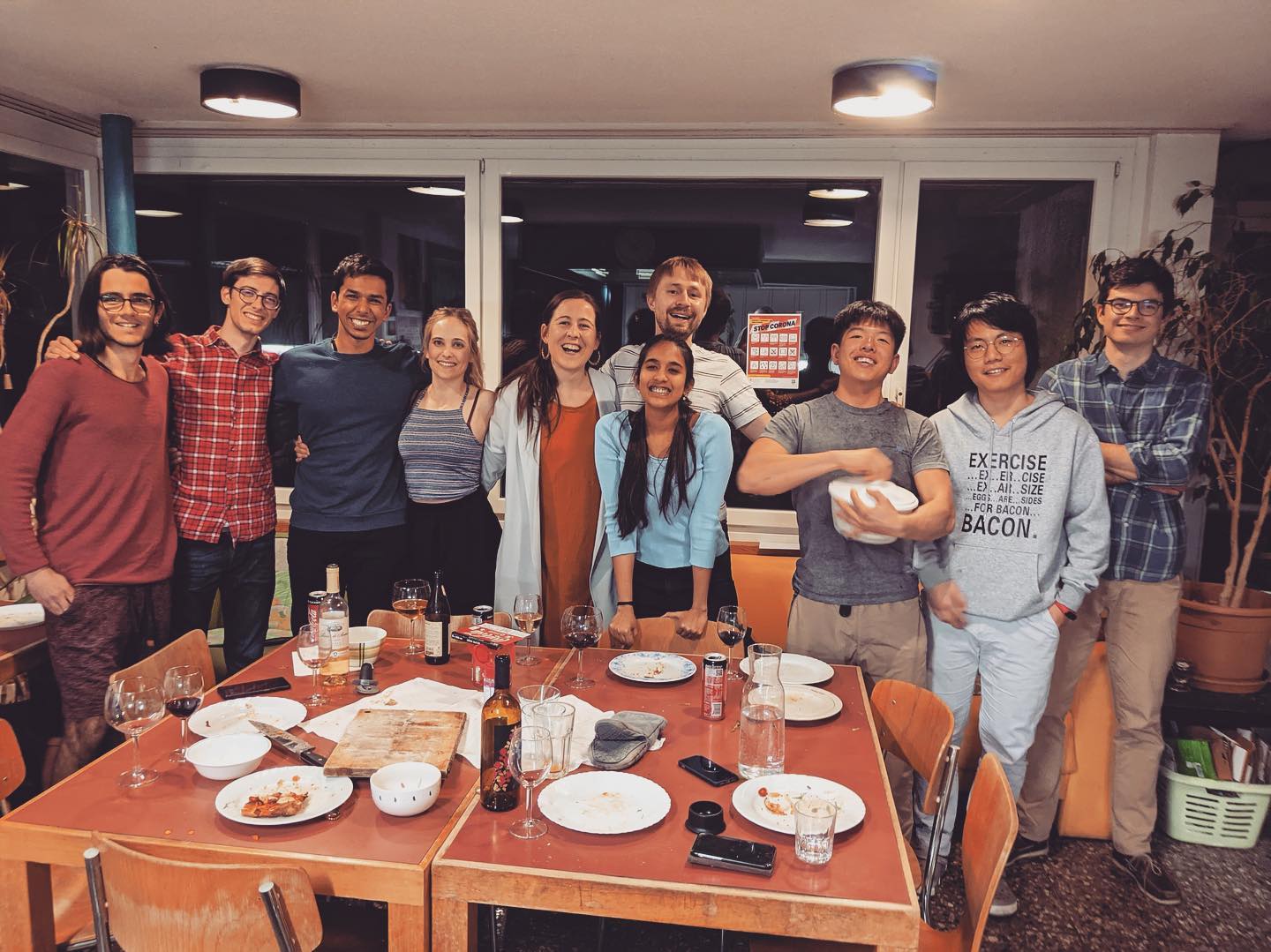
When I arrived in Zürich, I was totally euphoric and immediately began going to the theatre and museums. I can still remember well my first evening in the Zürich Opera House, the final performance of the production of Beethoven’s “Fidelio”, where I sat in the second row with my “Club Jung” ID, and in front of me the conductor: Markus Poschner, principal conductor of Linz’s Bruckner Orchester. I was also fascinated by Zürich’s diverse architecture with its imposing, modern concrete structures, and the medieval city centre, completely different than in Vienna. The ZHdK is also a very modern building, a former milk factory.
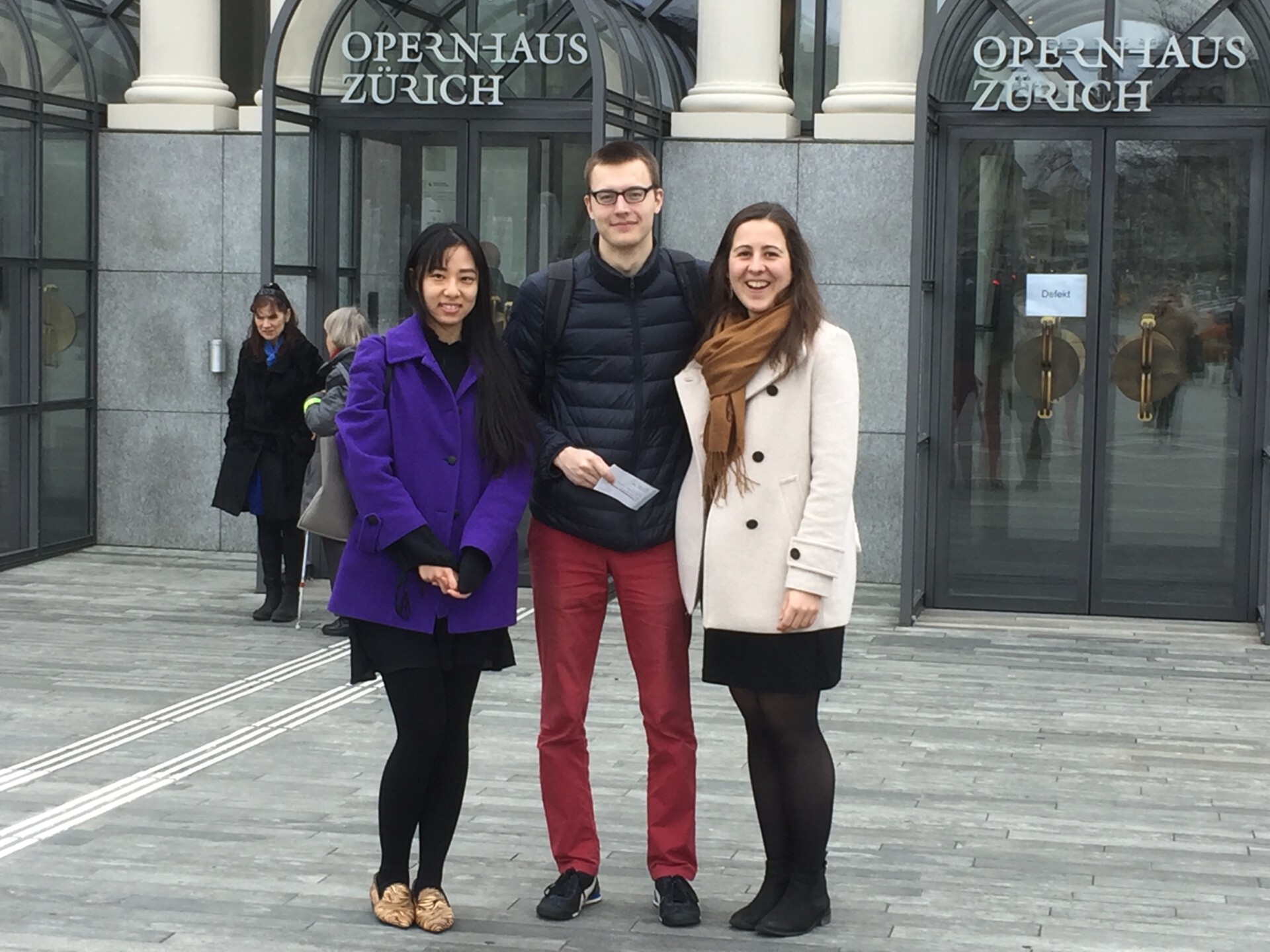
What was your impression of online instruction at the ZHdK?
I had to reorient myself and look in advance for a room for online lessons, for practising, and for making videos. I had to share the music room at the residence with other music students, so it happened occasionally that I used the laundry room for an online lesson or for practising. I had to be resourceful and incorporate more mental techniques into my practising. My online lessons were done via Zoom, or I sent my teacher videos of myself playing. Making the videos was a lot of work, but also very useful and productive for me. At the end of the summer semester, I then had one in-person lesson – a bright spot after several months in isolation. Although online instruction had some advantages, many things were lost over time, such as fun and motivation. For music students, the pandemic was a great challenge and brought with it many compromises and restrictions. I didn’t imagine my stay turning out this way, but I still have no regrets. My teacher was unstinting in her support of me on very many levels, and we made the best of the situation. I also used my time to write my master’s thesis. Before going to Zürich I had a very busy schedule, studying two subjects and working on the side. In addition, the “crisis period” was an opportunity for me to grow personally, as there was suddenly a great deal of time to reflect on what is important and what I want. I think that every crisis also contains an opportunity, and I had to discover this opportunity for myself.
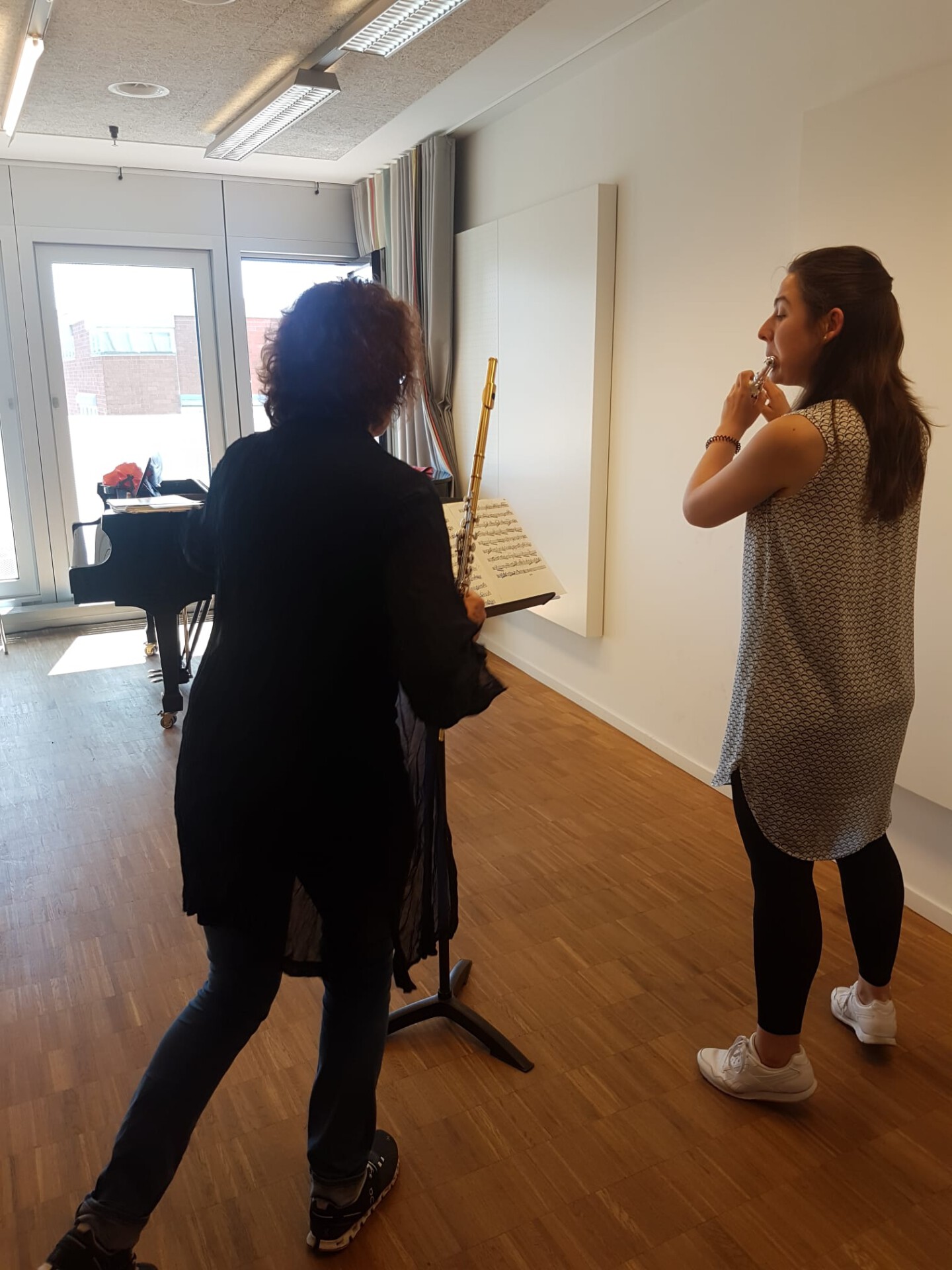
What did you learn from your time abroad on a personal level?
Before, I was very much steered from outside; I worked through all of my tasks but overlooked how little time remained for me personally. When you then suddenly have so much time, then these thoughts come into your head: Is the flute even the right thing for me? Why do I practise for hours on end, especially when there are no concerts? The question arises as to the purpose of everything and motivation: Do I enjoy making music, or do I have to do it because it is what I am studying? Studying music also requires a great deal of discipline, after all, but that is not everything. An experience I had in performance training at the ZHdK made a great impression on me: after playing, every student had to list three things that he or she did well. And no one could think of anything! This made me realise that we are very focussed on deficits and mistakes instead of concentrating on our strengths and finding a way to present our music and transport it to the outside world. Often, it is not the musicians who play perfectly who touch the listener, but rather those with a strong personality and charisma – those with an opinion and a message they convey through the music and their playing. But my impression was that so many students spend the entire day in a basement practising for hours at a time and in a way lose their personality; one has to “function” like a machine, concentrate primarily on mistakes that are to be corrected, and constantly compare oneself with others. The result is that little or no time remains for things like hobbies. While I want high-quality instruction, I also want to retain my personality, and for this it was necessary to set limits. In general, I observed and reflected a great deal during my stay in Zürich. Shortly before completing my studies, I had even reached the point where I was wondering if I should finish my flute studies at all, because I was uncertain where my path would lead me. Ultimately, I decided to complete my studies. My teachers at the ZHdK and the mdw (Dorit Führer-Pawikovsky) supported me greatly in this decision. I would like to take this opportunity to thank both of them, particularly Dorit. Without her trust and encouragement during this unusual period, finishing my studies would not have been possible.
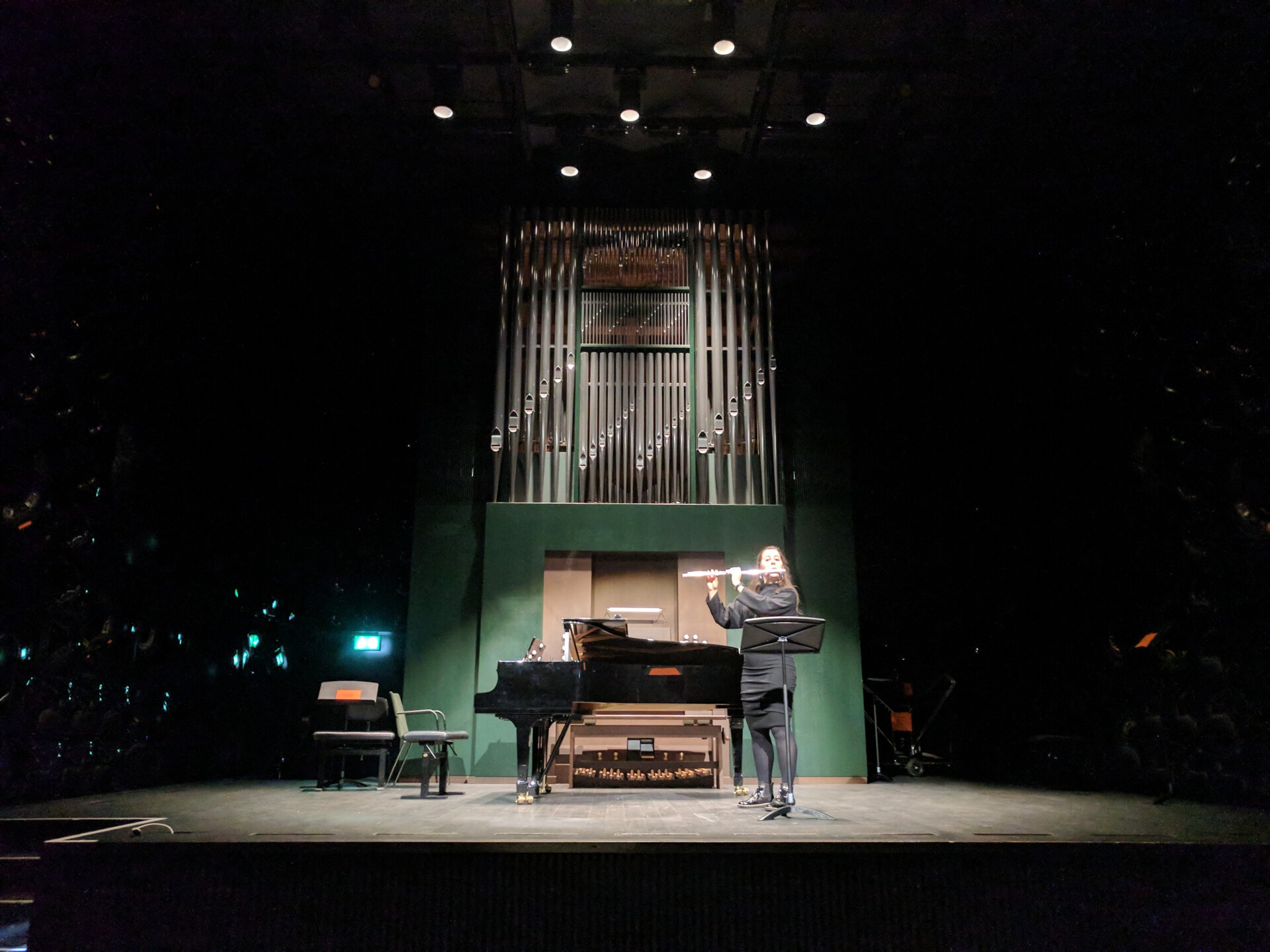
What differences and similarities do you see between the ZHdK and the mdw?
The ZHdK is an academy, and in my estimation, the focus is thus more on the artistic aspects. At the mdw, which is a university, the academic aspects are also very important. I can’t say what is more important – everyone must decide this for themselves. Personally, I think it is an asset to be taught an academic and scientific approach as well. In the final phase of my studies, it was also important for me that my artistic development was in the foreground. The importance placed on tradition and a certain sound ideal is very great at the mdw, in my opinion, which was good for me in my first years of study. At the ZHdK, I experienced a more open approach, which I profited from greatly in the final phase of my studies. Students simply must ask themselves what they prefer and what approach benefits them most in the current stage of their development In this sense, a semester abroad or a second course of study at a different university offers many opportunities. Due to the current situation, however, it is also important to weight the risks for oneself.
At the ZHdK, the various areas of artistic study are all in one single building: music, dance, acting, film, and visual arts each has its own floor with classrooms that one can see into. Through this open atmosphere, the students can learn a great deal from the other arts, which I found to be very inspirational because music cannot be separated from other arts. What I thought was great about the exams at the ZHdK was that external auditors conducted the exams. While this certainly costs a lot of money, it also guarantees objectivity and transparency.
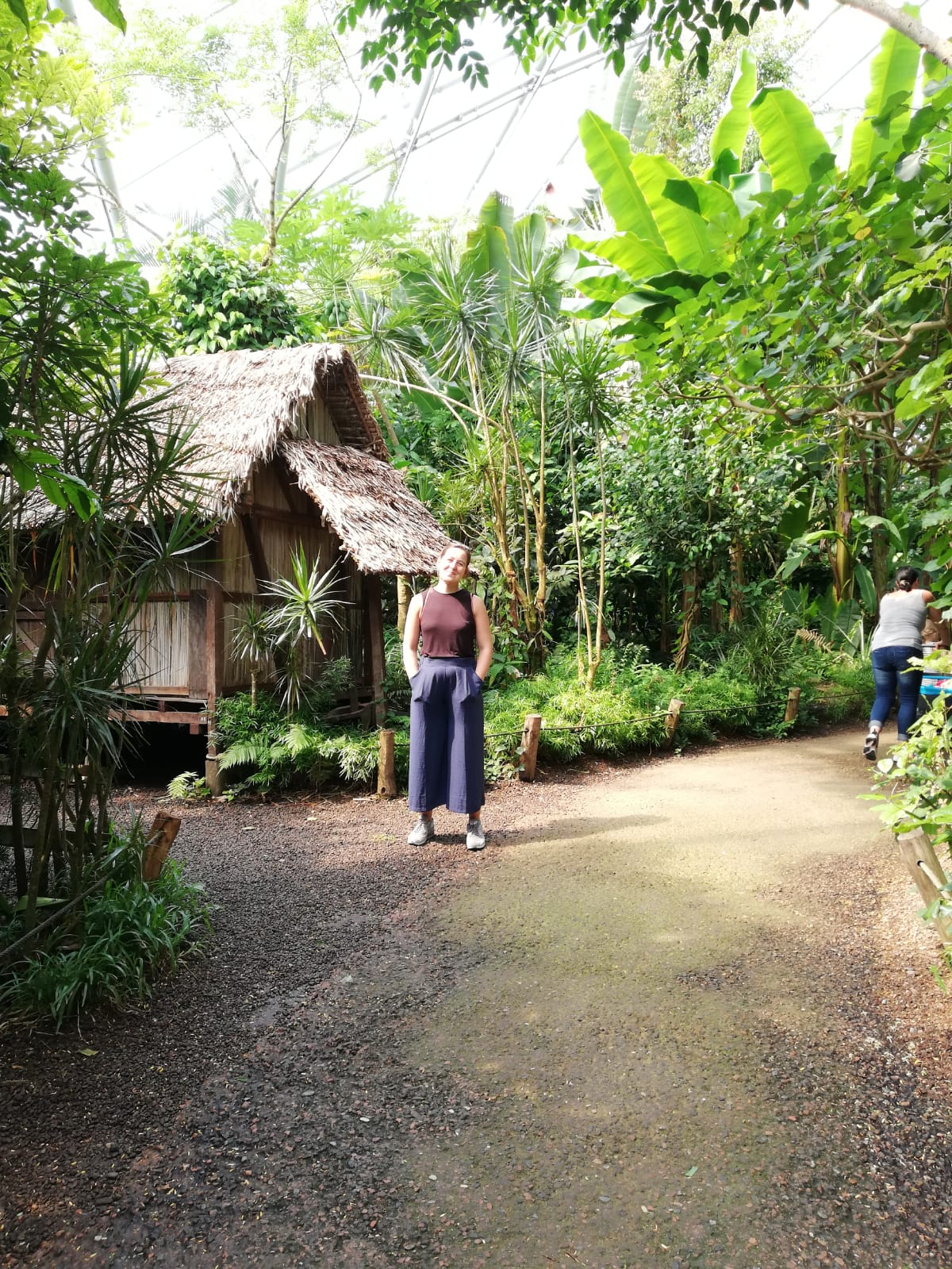
What were your most memorable experiences during your time abroad, both positive and negative?
What is positive in Switzerland is the appreciation and friendliness of the people. They are very correct and responsible – with regard to themselves and others. At the beginning, the Swiss seem distant, but in my experience, that lessens over time. Another positive thing is the beautiful landscape, the mountains, which thanks to a great transport system can be reached very quickly from Zürich.
In the student dormitory where I live, I have had the opportunity to meet people from other cultures and other courses of study. This period was very formative for me because I became aware of the fact that as a musician, you often are interacting just with other musicians – you live in a “music bubble”, so to speak, and it is very good to break out of this sometimes.
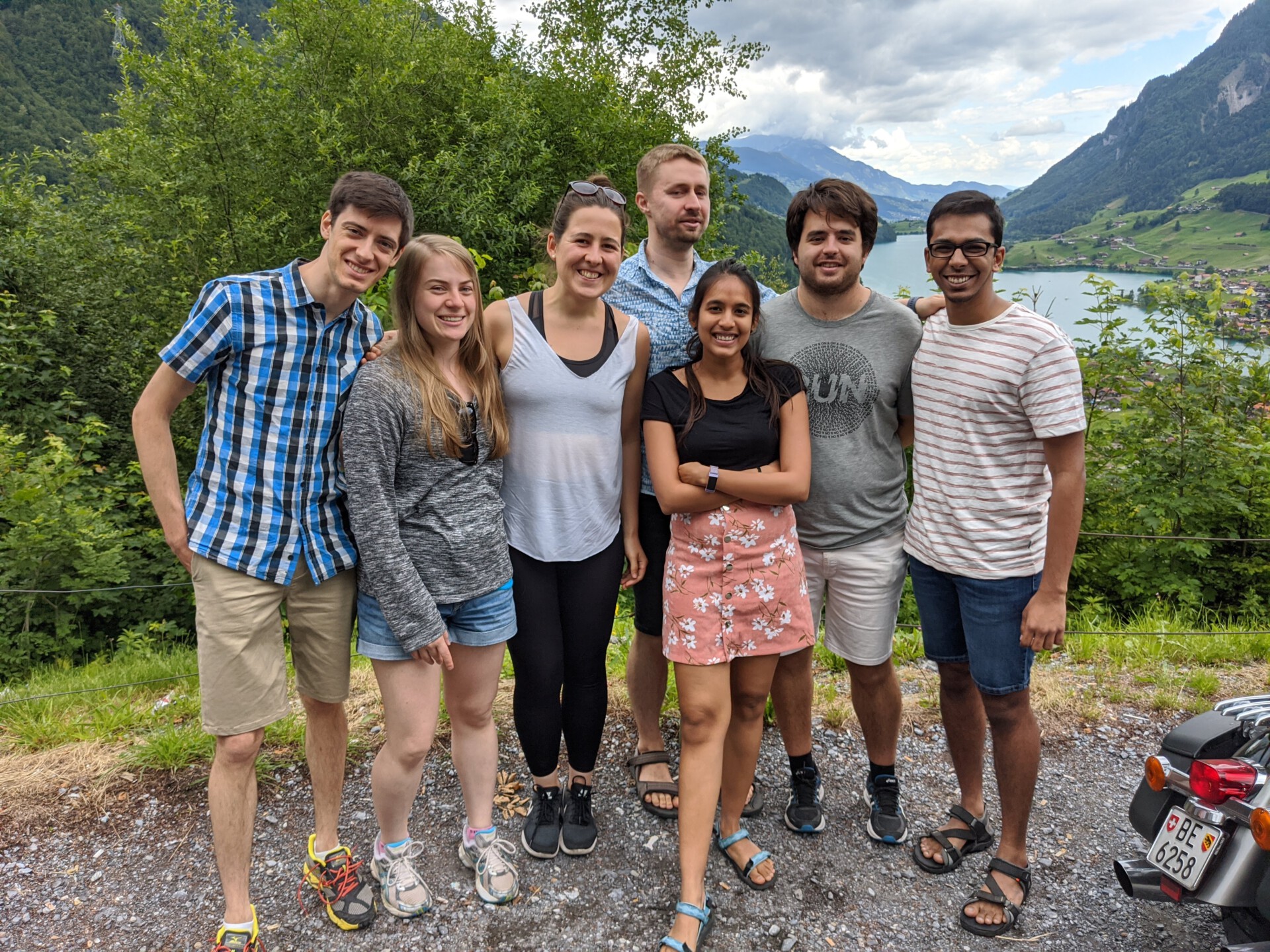
What was negative for me was the experiences in which I felt like a “foreigner” in Switzerland, with all the restrictions that come with this. If in your passport it says “Residence Permit for Education”, you are disadvantaged in some areas. Before my time abroad, I assumed that if I was studying at a university like the mdw, all doors would be open to me. This was not the case. I realised this when I began to orient myself professionally. Due to my residency status, I was denied opportunities for jobs even though I could prove my qualifications and even supply recommendations. I had to learn not to take this personally and to keep persisting, to know my strengths and to position myself. Now, I have been able to gain some job experience through substitute teaching and I have a secure position as a music and maths teacher at a high school near the Austrian border. My goal after completing my studies was to remain in Switzerland and gain some professional experience. The market for musicians here is totally saturated, and there are also differences in the application process. In order to be permitted to continue to live here, employment is required. Even for the Swiss it is not that easy to find a teaching job with sufficient hours. So I am happy and grateful to have found a good position and look forward to this new phase of my life.
Did you ever think about cutting short your studies abroad because of the Corona crisis?
I heard of a lot of students who ended their studies abroad just before the borders were closed and returned to their home countries. But I trusted my gut feeling, and I am happy and comfortable here in Zürich. So even though I did not know very many people at the beginning, I sensed that I had a supportive environment. The manner of communication and the response of society with regard to the restrictions were decisive reasons for me not to return to Austria. For my friends and family in Austria, however, it was difficult to understand why I would want to stay in a strange city during the lockdown, where I had lived only a few weeks. I had sublet my flat in Vienna and I thought: I will try it and stay until summer. At this point, no one really knew how long it would last. Before the summer, I then decided to request an extension and then remained one semester longer at the ZHdK. During this time I was able to complete an internship at the Musikschule Konservatorium Zürich, I could have many lessons in person and with restrictions, and at the end was able to give a recital without an audience in the large hall of the ZHdK. Compared with Vienna, I had incredible opportunities during the final semester at the ZHdK. The longer I remain in Switzerland, the more certain I am that my gut feeling to stay here was the right one.

Are you a mdw student and interested in spending a semester or year at one of our partner institutions?

